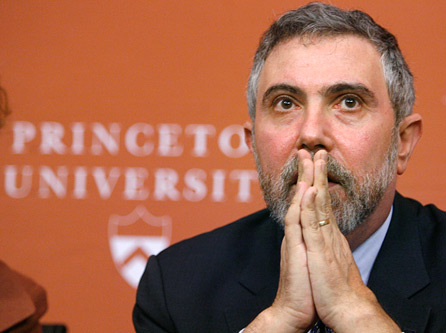The Economic Left is Left Out of the Debt Deal

It is probably crass to cite oneself in an article, but I wrote a piece a few months ago in which I stated:
Many Democratic voters support the Party because they see it as the party of social liberalism. While they may also support more government intervention in the economy than most Republican voters, that support isn’t as central to their world-view and they are more likely to see such issues as negotiable... while many economic liberals may react negatively and viscerally when conservatives suggest private-sector approaches to social problems or cuts in government spending, not all Democrats do. Politics is all about priorities, and economic liberals shouldn’t assume that their political allies agree with all of their priorities.
Well, it appears that President Obama has set his priorities and he sees government spending issues as negotiable. The budget / debt limit deal that President Obama has agreed to will cut billions from the Federal budget over the next decade with no guarantee of tax increases. There is no way to spin it - this is a big loss for economic liberals, and they know it. This plan may not satisfy the desires of the more fervid members of the Tea Party movement, but it does set out a pretty straightforward plan - cut the budget and don't raise taxes. This isn't a Keynesian stimulus plan or a plan that trades off budget cuts in some parts of the budget in favor of tax increases to pay for increased spending elsewhere. In other words, it isn't the sort of plan that inspires progressives, and that's why only half of the Democrats in the House supported it in the final vote on Monday.
There's a lot that went into this decision, not the least of which being Republican intransigence (which hasn't disappeared from some quarters) and fears over how the investment community would react to a default or more drawn-out budget battle. But I'd suspect part of this is a realization on the part of the President that while Democrats in general may dislike this deal, a lot of them (and perhaps more importantly, a lot of independent voters) don't prioritize Federal spending on domestic programs at the top of their agenda, so this isn't the place to draw a line in the sand. Economic liberals are a big player in Democratic politics, and they may make their voices heard in the coming months in one form or another. But the events of the last few weeks show that the economic left is just one player of the Democratic coalition, a player that in this case didn't win the day.

